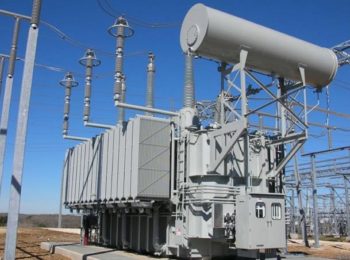
The Federal Government has concluded plans to scale up the local manufacture of power transformers and solar panels in the country in partnership with the Peoples’ Republic of China.
It was gathered that the collaboration was based on a 2013 agreement the government signed with the Asian country.
A delegation comprising members of the National Assembly and officials of the National Agency For Science and Engineering Infrastructure (NASENI) had just returned from China in connection with the project.
The Executive Vice Chairman, NASENI, Prof. Mohammed Haruna disclosed in Abuja on Friday that his agency had commenced production of transformers, but added that it was not producing in commercial quantities.
He said his visit to China was in connection with the setting up of high voltage testing laboratory as well as the production of solar panels in Nigeria to boost local capacity in collaboration with China Great Wall Industry Corporation.
Haruna said,”The other component is high voltage testing laboratory. This is a key project in the area of power. There can be no successful power company in Nigeria without production of this component locally.
“Within the mandate of NASENI to intervene in the area of power, we visited China for this project which is getting support from the government of China.”
He explained that the NASS members on the trip including the head of the delegation, Senator Ajayi Boroffice, and the Chairperson, House of Representative Committee on Science and Technology Committee, Beni Lar, were excited by what they saw, adding that they were convinced about the impact of the project on the power sector in the country.
Haruna pointed out that NASENI currently produces solar panels and modules in Karshi, Abuja but noted that the operation was limited in scope for now, adding that the partnership with China was expected to increase its production capacity.
He pointed out that the long term plan was to scale up production of solar panels in order to drive down the prices and also to manufacture enough quantities for export to other African countries.
He said, “It is compulsory to use raw materials that are locally available in Nigeria to produce the cells in order to increase local contents. Doing this will drastically bring down the cost of solar installations in Nigeria and it will support also the sub-region.